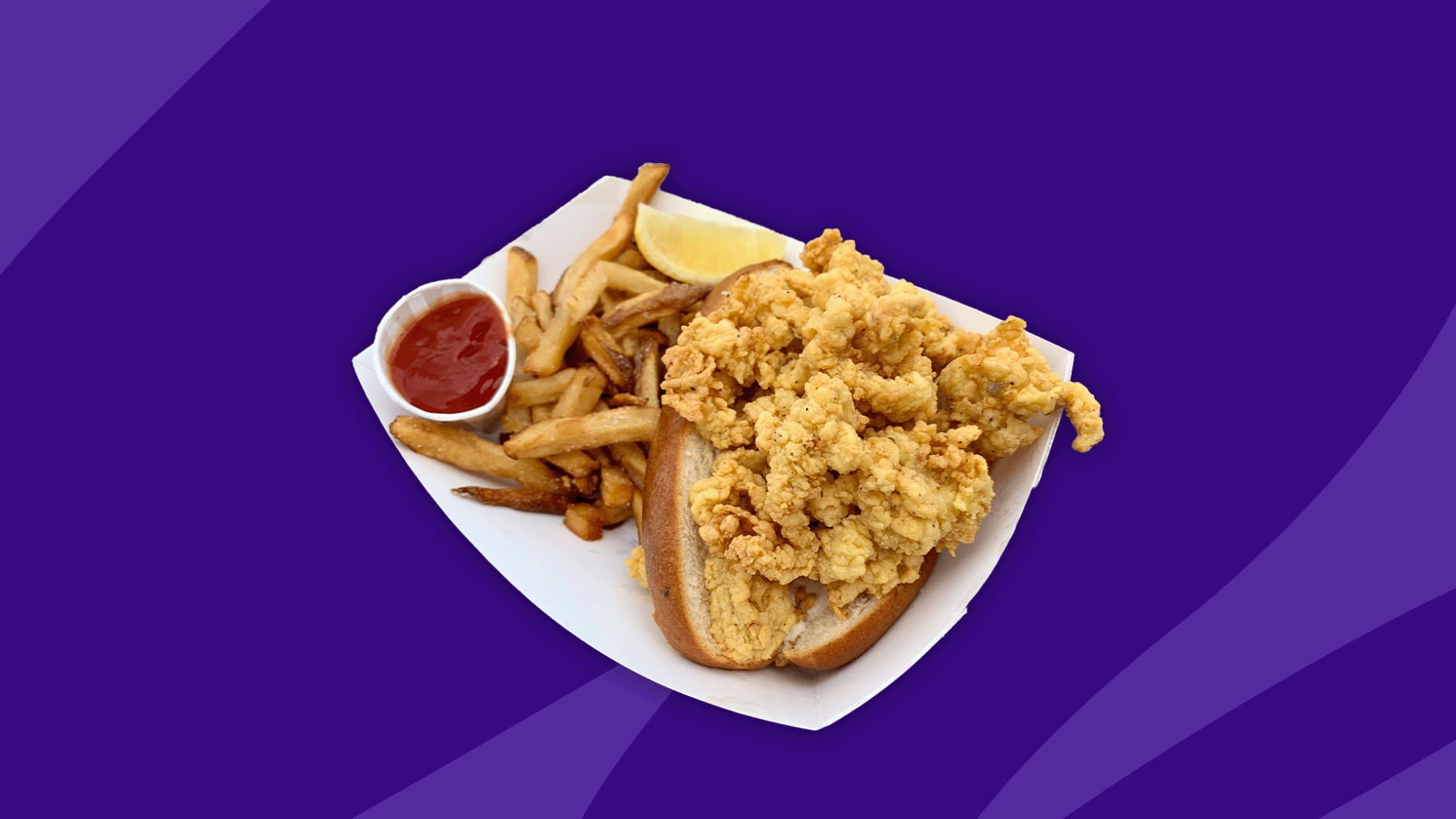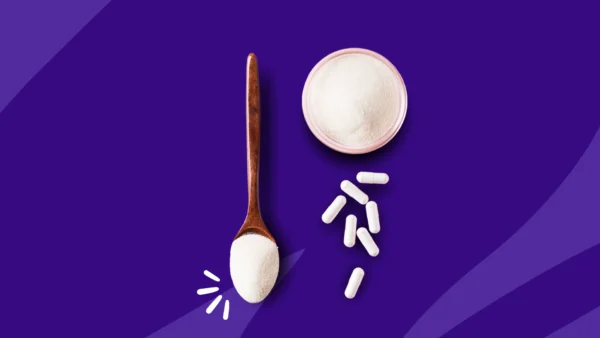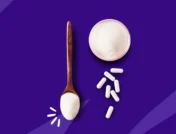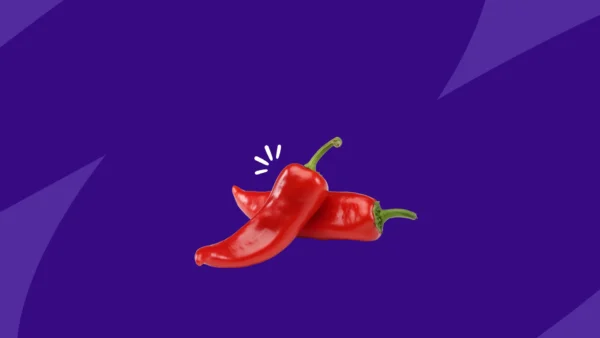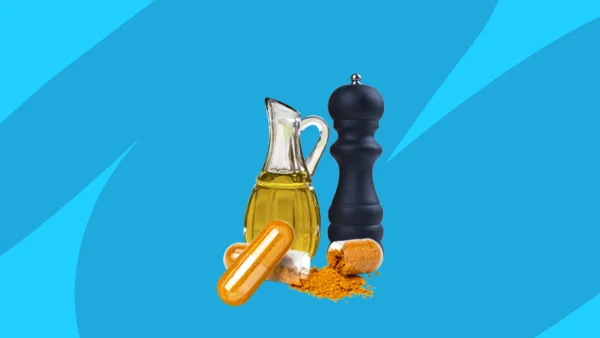Constipation is common, but that doesn’t make it any less uncomfortable. You’ll understand the desire for quick relief if you’ve ever experienced bloating, straining to poop, or passing hard, lumpy stools. About 16% of American adults experience constipation, and the number is even higher (33%) in adults 60 or older.
What you eat also significantly impacts the frequency and ease of going to the bathroom. Below, three medical experts offer advice on the best diet for constipation, including foods to avoid when constipated.
Why do I get constipated?
“Constipation, which is technically less than three bowel movements a week, can be triggered by several things,” says Vicki Shanta Retelny, RDN, a registered dietitian and lifestyle nutritionist in Chicago. This includes conditions such as diabetes or hypothyroidism, lack of physical activity, or being an older adult.
According to Jamie Lee McIntyre, RDN, a nutrition practitioner and media dietitian based in Florida, constipation can also be a side effect of certain medications. These include:
- Opioid painkillers
- Tricyclic antidepressants
- Antiemetics like Zofran
- Medications for overactive bladder
- Some blood pressure medications
- Iron supplements
- GLP-1 agonists, such as Ozempic
Though issues can occur anytime, many report feeling more constipated after meals. The most common reason is lack of water or fluids—which is another cause of constipation, says Amy Lee, MD, RDN, chief medical officer of Lindora Clinic in California. Dr. Lee advises drinking at least 2 to 3 liters of water daily to keep your body and digestive system running smoothly.
Not getting enough fiber is the most common dietary cause of constipation. In fact, a diet low in fiber and high in meat and cheese can change how your body releases gut and digestive hormones, explains Shanta Retelny. In 2021, researchers found fiber is essential to maintaining healthy intestinal size and colonic hormone levels.
7 foods to avoid when constipated
Quite a few studies show certain foods can worsen or lead to constipation. Here are seven foods to avoid if you’re experiencing constipation.
1. Fried foods
Often found at fast food joints, these greasy foods are low in fiber and loaded with saturated fat. A 2015 research analysis of data from 6,207 participants linked a diet high in saturated fat to constipation. When constipated, don’t eat these types of foods, which tend to have very little fiber, a macronutrient vital to gut health.
2. Refined carbs
Refined carbohydrates are grains that have been processed and stripped of dietary fiber and other nutrients. McIntyre says these highly processed foods are a common cause of constipation.
Foods high in refined carbs include:
- White bread
- White rice
- Potato chips
- Many pastries, desserts, and breakfast cereals
- Highly processed snack foods
3. High-sodium foods
Consuming too much salt can lead to bloating and constipation. A 2022 study found a higher sodium intake increased the odds of constipation. According to the researchers, consuming a lot of salt can reduce the amount of water in the body, leading to dry, hard-to-pass stool.
4. Red meat
Red meat is low in fiber and high in fat and protein. Protein is not bad for your digestive system, but a high-protein diet can cause constipation, especially if you’re not prioritizing fiber, according to the Mayo Clinic. Anyone prone to constipation should avoid eating red meat and instead reach for other protein sources, such as fiber-rich legumes.
5. Dairy products
If you are concerned about constipation, skip the ice cream and cheese until you have regular bowel movements again. A 2022 research review found that in about 30% of cases, constipation after eating dairy is a sign of lactose intolerance. But even if you’re fine with dairy, its high fat and low fiber content can still slow bowel movements.
6. Unripe bananas
Fiber-rich fruit is often recommended to prevent or treat constipation at home. Green, unripe bananas are the exception. Research has found that their high starch content can trigger or worsen constipation. If you are constipated, opt for a well-ripened banana.
7. Alcohol
There are limited studies on the link between alcohol and constipation. However, the National Library of Medicine considers the overuse of alcohol a factor in the development of constipation.
An explanation: Hydration is vital for gut motility, says Dr. Lee. Unfortunately for those who enjoy alcohol, adult beverages tend to dehydrate you. Mild dehydration from alcohol is also the culprit behind hangover symptoms like headache, thirst, and fatigue.
What foods help with constipation?
As for foods that help with constipation and digestive health, you’re going to want to increase fiber intake. The American Heart Association recommends 25 to 30 grams of fiber from foods and supplements daily. The following high-fiber foods are a good place to start.
- Fruits. Eating more fruits, including ripe bananas, can help you get enough fiber and alleviate symptoms of constipation. Shanta Retelny suggests eating dried prunes or drinking prune juice for a natural laxative effect.
- Legumes. The high fiber content in lentils, chickpeas, black beans, and other legumes can ease constipation. These protein sources are a gut-friendly alternative to fatty meats.
- Probiotic-rich foods. McIntyre says the probiotics found in yogurt, kefir, sauerkraut, and kombucha can help relieve constipation. Though yogurt is a dairy product, its probiotic content is good for gastrointestinal issues.
- Whole grains. Foods with whole-wheat flour, oats, brown rice, or bran are also good sources of fiber.
- Vegetables. High-fiber vegetables good for constipation include broccoli, carrots, collard greens, and green peas.
Other prevention methods for constipation
Many cases of constipation can be treated at home. Here are five tips from medical experts on promoting healthy bowel function:
Take daily walks. Any type of physical activity will help you stay regular. “A sedentary lifestyle or long days working at a desk can reduce movement in the GI tract,” says McIntyre. “Mobility allows for the gravitational pull to help food and waste travel down through your body for excretion.”
Get enough water. “Stay hydrated by aiming for half of your body weight in ounces from fluids, primarily water,” says Shanta Retelny.
Avoid holding it in. “When you have to go, go,” recommends Santa Retelny. “Putting off a trip to the bathroom can cause the stool to become hard, making it more difficult to pass.”
Change your position on the toilet. Dr. Lee suggests placing a stool at the base of your toilet to elevate your feet while pooping. “Doing so can open up your pelvis, which can help you go,” she says.
Try over-the-counter medications. Fiber supplements, stool softeners, or bulk-forming laxatives are often the first defense against constipation that does not respond to simple lifestyle changes. (Stimulant laxatives, such as bisacodyl, should not be taken long-term without consulting your healthcare provider.)
While everyone’s bowel habits are different, chronic constipation may require a prescription medication or medical intervention. Consult a healthcare provider if you experience severe stomach pain, bloody stools, or unintended weight loss. Report chronic constipation to your healthcare provider or gastroenterologist—it could be a sign of an underlying medical condition.
Sources
- American Gastroenterological Association Technical Review on Constipation, Gastroenterology (2014)
- Dietary Fiber Is Essential to Maintain Intestinal Size, L-Cell Secretion, and Intestinal Integrity in Mice, Frontiers in Endocrinology (2021)
- Laxative (Oral Use), The Mayo Clinic (2024)
- When to See a Doctor for Constipation, Cedars Sinai (2014)
- Association of high dietary saturated fat intake and uncontrolled diabetes with constipation: evidence from the National Health and Nutrition Examination Survey, Journal of Neurogastroenterology and Motility (2015)
- Effects of rice-based and wheat-based diets on bowel movements in young Korean women with functional constipation, European Journal of Clinical Nutrition (2020)
- Association between overall dietary quality and constipation in American adults: a cross-sectional study, BMC Public Health (2022)
- Are high-protein diets safe for weight loss? The Mayo Clinic (2022)
- Can Lactose Intolerance Be a Cause of Constipation? A Narrative Review, Nutrients (2022)
- Hangovers, National Institute on Alcohol Abuse and Alcoholism (2021)
- Constipation, StatPearls (2023)
- Eating, Diet, & Nutrition for Constipation, National Institute of Diabetes and Digestive and Kidney Disease (2018)



